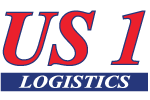In the ever-evolving world of sales, many industries have shifted their focus from traditional methods like cold calling to newer, digital strategies such as social selling and  email marketing. However, for industries like transportation and logistics, cold calling remains a relevant and often effective tool for generating leads and building relationships. The question on many professionals’ minds is: Does cold calling still work in transportation and logistics? The short answer is yes—but it requires the right approach to be successful.
email marketing. However, for industries like transportation and logistics, cold calling remains a relevant and often effective tool for generating leads and building relationships. The question on many professionals’ minds is: Does cold calling still work in transportation and logistics? The short answer is yes—but it requires the right approach to be successful.
In this article, we’ll explore how cold calling continues to be a valuable part of the sales toolkit in transportation and logistics, what challenges it faces, and how to ensure that your cold calling strategy is as effective as possible.
WANT TO LEARN MORE ABOUT COLD CALLING? CHECK OUT: Be a Sales Pro.com
1. The Role of Cold Calling in the Transportation and Logistics Industry
The transportation and logistics industry thrives on relationships. Unlike sectors where transactions are quick and transactional, transportation and logistics services often involve complex, long-term commitments. Companies in this field depend on building trust with their clients, establishing partnerships that extend far beyond a one-time delivery or shipment. In this trust-driven landscape, cold calling remains one of the most effective tools for initiating the kind of personal connections that lead to lasting business relationships.
Building Trust in a Highly Competitive Industry
Logistics and transportation providers operate in a fiercely competitive environment where reliability, consistency, and reputation are everything. Potential clients—whether they are manufacturers, retailers, or distributors—need assurance that their goods will arrive on time, intact, and without complications. Every detail matters, from the speed of delivery to the handling of fragile items, and businesses can’t afford to partner with a logistics provider that doesn’t meet their high standards.
This is why building trust is critical. Cold calling provides an opportunity for logistics providers to introduce themselves to potential clients in a more personal and direct way than digital outreach alone can achieve. In this conversation, sales representatives can humanize the company, showcasing their reliability and expertise, which are crucial to winning over clients who might be wary of handing over their supply chains to an unknown entity.
Cold Calls as the Gateway to Long-Term Partnerships
In the transportation and logistics industry, forming long-term partnerships is key. Clients rarely look for a single, one-off shipment or delivery. Instead, they want to  work with a logistics provider who can support them through the complexities of supply chain management over the long term. This means repeat business, ongoing contracts, and trust in the provider’s ability to adapt to changing circumstances, such as fluctuating demand, international shipping requirements, or unforeseen disruptions like weather events.
work with a logistics provider who can support them through the complexities of supply chain management over the long term. This means repeat business, ongoing contracts, and trust in the provider’s ability to adapt to changing circumstances, such as fluctuating demand, international shipping requirements, or unforeseen disruptions like weather events.
Cold calls are often the first step in establishing these kinds of relationships. A successful cold call opens the door to future conversations and lays the groundwork for ongoing collaboration. It’s not just about securing a quick sale; it’s about demonstrating that your company is capable of handling the client’s evolving logistics needs over time. By positioning your services as a solution to their pain points, you can begin the journey from initial contact to trusted logistics partner.
Direct Communication with Decision-Makers
One of the greatest advantages of cold calling in the logistics industry is the opportunity to speak directly to decision-makers. In large corporations, logistics management is often overseen by supply chain directors, operations managers, or transportation heads, individuals who are responsible for the day-to-day execution of the company’s logistics operations. Cold calling provides a direct line to these key players, enabling sales reps to bypass layers of digital communication and get straight to the individuals who make purchasing decisions.
During a cold call, sales representatives can:
- Introduce their services directly to the people who have the authority to sign contracts or approve logistics partners.
- Learn about specific pain points, such as delays, high transportation costs, or capacity issues, and position their company as the solution.
- Build rapport with decision-makers, which is essential in logistics, where long-term relationships hinge on trust and dependability.
These direct conversations offer a unique chance to uncover valuable information about the company’s current logistics challenges and tailor your service offerings to meet their specific needs.
Addressing Client Pain Points and Offering Tailored Solutions
 Unlike industries where transactions happen quickly or are conducted largely online, transportation and logistics require personalized attention to detail. Each client has unique logistics needs based on factors such as the type of freight they handle, the distances they need to cover, and the regulatory challenges they face when shipping across borders. Cold calls allow sales representatives to dig deeper into these pain points and offer tailored solutions that address the client’s specific concerns.
Unlike industries where transactions happen quickly or are conducted largely online, transportation and logistics require personalized attention to detail. Each client has unique logistics needs based on factors such as the type of freight they handle, the distances they need to cover, and the regulatory challenges they face when shipping across borders. Cold calls allow sales representatives to dig deeper into these pain points and offer tailored solutions that address the client’s specific concerns.
For example, a cold call might reveal that a prospective client is struggling with unpredictable delivery times due to inefficient routes or delays at certain ports. A logistics provider can then position themselves as the solution, offering route optimization services, better tracking systems, or customs expertise to ensure timely deliveries. This personalized approach is far more effective than generic sales pitches or emails, as it demonstrates a real understanding of the client’s logistics challenges and a willingness to solve them.
Tip: Always approach cold calls with a solution-oriented mindset. Ask questions like, “What are the biggest logistics challenges you’re currently facing?” and listen carefully to tailor your response accordingly.
Cold Calling: The Personal Touch That Builds Confidence
Potential clients in logistics need to feel confident that their freight will be handled with care, precision, and efficiency before they commit to a long-term partnership. Cold calling gives sales representatives the chance to offer that personal touch, showing prospects that they are dealing with a company that takes the time to understand their needs.
By engaging in a two-way conversation, cold calling offers several key benefits:
- Real-time problem-solving: Prospects can ask questions and express concerns on the spot, and the salesperson can provide immediate answers. This back-and-forth builds confidence and demonstrates that your company is responsive and prepared to meet their needs.
- Relationship-building: Cold calls foster a more personal connection than an email or a digital marketing message. They allow the prospect to hear a voice, pick up on nuances in communication, and get a sense of the company’s customer service culture.
- Tailored engagement: Unlike mass-marketing strategies, cold calls allow for customized conversations that address the specific concerns and interests of the client. This level of personalization is often a deciding factor for companies choosing a logistics partner.
In an industry as detail-oriented as logistics, these personalized interactions are invaluable. When potential clients hear firsthand how your company can offer reliable, customized solutions to their logistics challenges, they’re more likely to consider your services and move toward forming a partnership.
Fact: According to research by Raconteur, phone-based outreach is still a critical method in industries like transportation, where the nature of the service demands trust and direct communication.
2. The Challenges of Cold Calling in Logistics
Despite its value, cold calling isn’t without its challenges, especially in today’s digital-first world. Here are some common obstacles faced by sales teams in the transportation and logistics industry:
- Gatekeepers: Reaching decision-makers can be tricky, especially in larger organizations. Receptionists or administrative assistants often act as gatekeepers, and sales reps must find ways to respectfully get past them to connect with the right people.
- Time-pressed executives: Logistics managers, fleet operators, and transportation heads are often swamped with their day-to-day responsibilities. Getting them to take time for an unscheduled cold call can be a challenge, and you must provide immediate value to keep them on the line.
- Skepticism of cold outreach: Many decision-makers have been inundated with sales pitches, making them wary of cold calls. Logistics and transportation buyers are often cautious, knowing that their operations depend on reliability and trust, and they may hesitate to engage with someone they don’t know.
Tip: Combat these challenges by researching the companies and their pain points before calling. When you can offer specific insights into their needs, you stand a better chance of holding their attention.
3. Why Cold Calling Still Works in Transportation and Logistics
Despite the challenges, cold calling is still effective in transportation and logistics because it provides an opportunity for real human interaction, something that emails and digital advertising can’t always achieve. In industries where companies manage complex supply chains, urgent deliveries, and high-value goods, decision-makers often prefer to speak to a person who can instantly provide information, address concerns, and answer questions.
Here are a few reasons why cold calling still works:
- Building relationships: Logistics is all about trust. Whether it’s ensuring that goods arrive on time or coordinating complex international shipments, building a personal relationship through direct conversations is crucial. Cold calling opens the door to future interactions, allowing sales teams to establish a personal connection that can lead to a long-term partnership.
- Immediate problem-solving: A cold call offers an immediate platform for discussion. Sales reps can ask about specific challenges the company is facing—whether it’s cost concerns, delivery timelines, or capacity issues—and position their company as the solution. For instance, a logistics provider may discover through a cold call that a prospective client is struggling with delays at ports. The salesperson can then tailor their pitch to focus on their company’s expertise in customs clearance and faster transit times.
- Direct access to decision-makers: In the transportation industry, sales are typically made at the top, meaning that executives and decision-makers are often the ones who decide on contracts with logistics providers. Cold calling can fast-track access to these key players, particularly when targeting smaller or mid-sized companies where there are fewer barriers between sales reps and decision-makers.
Fact: According to HubSpot, 82% of buyers say they accept meetings with salespeople after initial contact through a cold call—this applies especially to industries like logistics, where relationships and trust are paramount.
4. How to Make Cold Calling Work for You
Cold calling is effective, but only when done right. In transportation and logistics, where time is money, a sales call must quickly deliver value and showcase how your company can help meet the specific needs of a potential client. Here’s how to make cold calling work in this competitive industry:
- Do your homework: Before dialing, research the company’s operations, pain points, and competitors. The more specific you can be about how your service will benefit
 their logistics, the more likely they’ll engage with you. For example, if you know that a prospective client has been struggling with capacity issues, focus your pitch on how your company can provide scalable shipping solutions.
their logistics, the more likely they’ll engage with you. For example, if you know that a prospective client has been struggling with capacity issues, focus your pitch on how your company can provide scalable shipping solutions. - Craft a compelling value proposition: Decision-makers in logistics don’t want to hear about generic services. They need to know exactly why your company stands out. Are you able to offer lower costs, faster delivery times, or better reliability? Start with the value you can bring to their current operations.
- Be human, not salesy: Cold calling is about starting a conversation, not closing a deal on the first call. Ask questions, listen to the challenges they’re facing, and offer insights based on their needs. Avoid the temptation to launch into a full-blown sales pitch without first understanding the prospect’s pain points.
- Follow up: Cold calling works best when it’s part of a broader lead-nurturing strategy. Don’t let a prospect slip away after just one call. Send a follow-up email summarizing your conversation, offering additional value (such as case studies or white papers), and setting a time for a future discussion. A multi-touch approach builds familiarity and trust over time.
5. Cold Calling Success Stories in Transportation and Logistics
Cold calling has yielded great results in the transportation and logistics sector. Many companies have successfully landed key contracts or forged long-term partnerships by leveraging personalized, targeted cold calling.
For example, ABC Freight Solutions was able to secure a large contract with a manufacturing company by cold calling their logistics manager. The sales team had done thorough research and knew that the manufacturer was facing rising costs from delays in their supply chain. The cold call focused on how ABC Freight’s just-in-time delivery solutions could reduce those costs, ultimately leading to a signed deal after a series of follow-ups.
Similarly, XYZ Transport Services made significant inroads by cold calling smaller businesses that required tailored shipping solutions for fragile goods. Through consistent outreach, XYZ Transport was able to build trust with these companies, ultimately becoming their go-to logistics provider.
6. The Future of Cold Calling in Logistics: Is It Here to Stay?
As industries continue to evolve with technology, cold calling may seem like an outdated technique. However, in transportation and logistics, where relationships, trust, and communication are key, cold calling is still highly relevant. The need for real-time problem-solving, the complexities of the supply chain, and the long-term nature of logistics contracts ensure that cold calling remains a valuable part of the sales process.
While it should be complemented with other sales strategies—such as social media engagement and email marketing—cold calling is far from dead. It’s evolving, and those who adopt the right techniques can still see impressive results.
WANT TO LEARN MORE ABOUT COLD CALLING? CHECK OUT: Be a Sales Pro.com
Cold Calling in Transportation and Logistics Works—But Requires Strategy
In the fast-paced, highly competitive world of transportation and logistics, cold calling is far from obsolete. It remains a powerful way to connect with decision-makers, build relationships, and offer immediate solutions to real-time challenges. To make it work, sales teams need to focus on personalization, deep industry knowledge, and consistent follow-up.
When combined with modern tools like customer relationship management (CRM) systems and social media, cold calling can still deliver impressive results, driving both growth and long-term success in the logistics industry.



Recent Comments